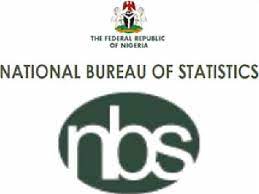Indications that current fiscal and other economic reform initiatives to attract investments to Nigeria by the President Bola Tinubu-led administration are not yielding desired sustainable results have emerged based on the quantum of capital importation to the nation’s economy in the second quarter of this year.
The National Bureau of Statistics (NBS) in its ‘Nigeria Capital Importation Q2 2024’ report published on Tuesday, October 8, indicated that in the quarter the total capital importation into Nigeria increased to US$2,604.50 million, representing a decline of by 22.85% when compared to the preceding quarter’s US$3,376.01 million.
However, it clarified that the Q2 2024 imported capital was higher than US$1,030.21 million recorded in the corresponding quarter of 2023, indicating an increase of 152.81%.
The statistics agency, however, disclosed that when compared to the preceding quarter’s value, capital importation in Q2 2024 declined by 22.85% from US$3,376.01 million in Q1 2024.
The report’s figures showed that in the quarter, Portfolio Investment ranked top with US$1,404.70 million, accounting for 53.93%, followed by Other Investment with US$1,169.97 million, accounting for 44.92%, while Foreign Direct Investment recorded the least importation with US$29.83 million (1.15%) of total capital importation.
According to the NBS, the Banking sector recorded the highest inflow with US$1,123.95 million, representing 43.15% of total capital imported in Q2 2024, followed by the Production/Manufacturing sector, valued at US$624.71 million (23.99%), and Trading sector with US$569.22 million (21.86%).
On the countries of origin of the imported capital, the report reflected that during the quarter under review, imported capital to Nigeria originated largely from the United Kingdom with US$1,120.15 million, representing 43.01% of the total capital imported, followed by The Netherlands with US$577.82 million (22.19%) and the Republic of South Africa with US$255.98 million (9.83%).
The Bureau further clarified that out of the three states that recorded the highest capital importation during the quarter, Lagos State topped the destination chart with US$1,367.84 million, accounting for 52.52% of the total capital imported, Abuja (FCT) followed with US$1,236.64 million (47.48%), and Ekiti State came third with US$0.0003 million.
The Bureau indicated that among the banks through which the imported capital was channeled, Citibank Nigeria Limited received the highest with US$818.46 million (31.43%), followed by Standard Chartered Bank Nigeria Limited with US$654.79 million (25.14%) and Rand Merchant Bank Plc with US$488.59 (18.76%).






